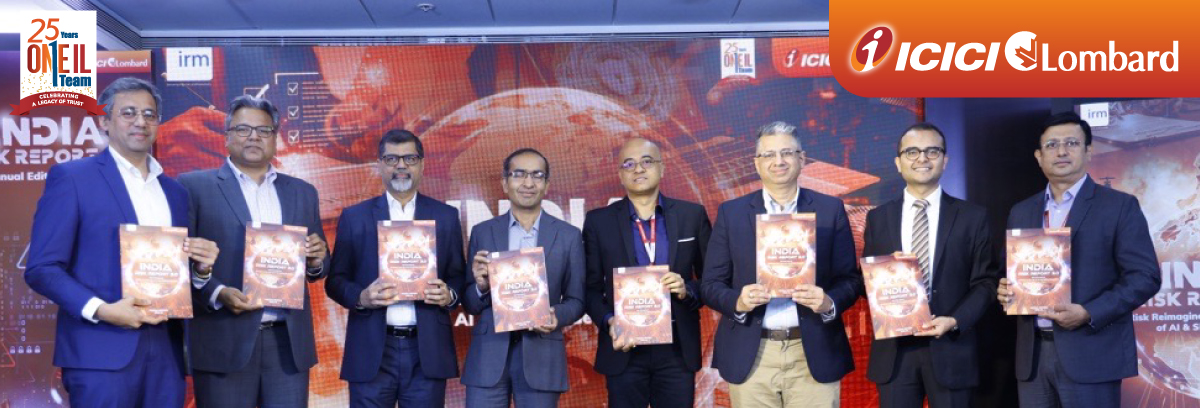
Across the last three years, the India Risk Report has tracked the growing maturity of Indian businesses in managing uncertainty-beginning in 2023 with the imperative to embed risk culture as a business enabler, and progressing in 2024 toward stronger risk disclosures and greater transparency across the corporate sector. The India Risk Report 2025 edition takes this evolution forward, reflecting how organizations are operating in an increasingly complex environment shaped by two defining forces: the rapid rise of AI and technology, and the shifting realities of trade and geopolitics.
India Risk Report builds upon the collaborative efforts of ICICI Lombard and IRM India to study and analyze the top risks faced by India Inc., as well as the industry’s preparedness to address them. This year’s report delves deeper into enterprise resilience in India, aiming to equip organizations not only to withstand an increasingly volatile risk landscape, but also to thrive within it.
India Risk Report 2025 draws insights from the Enterprise Risk Perception Survey 2025 (ERPS-2025), based on 250+ organizational responses, providing a robust view of risk priorities and preparedness across Indian enterprises. A three-year comparison of risk perceptions points to steady progress in process maturity, while also highlighting a continuing challenge: building a strong and consistent risk culture.
The report outlines key short-term and long-term risks and what they signal for leadership decision-making. It evaluates enterprises across 12 critical dimensions of risk maturity, spanning operational and strategic resilience-covering risk identification practices, the use of controls and insurance, initiatives to strengthen risk culture, and the ability to capture and share learnings from risk events and near misses. The analysis is further strengthened by 12+ expert insights. Select chapters also conclude with short Q&A-style MCQs, enabling readers to test their understanding of key concepts and takeaways.
With focused lenses on manufacturing and pharmaceuticals, the report examines how these sectors are responding to supply chain shifts, cost and input volatility, regulatory and quality expectations, operational continuity, and increasing exposure to global disruptions. It also explores how stronger preparedness can be built through better risk visibility across vendors and partners, tighter controls, and a more embedded risk culture across functions. In addition, the report brings a dedicated view on start-up risks, recognizing that early-stage organizations often face a different risk mix than established enterprises - ranging from runway and scaling pressures to concentration risks, talent dependence, and faster-moving operational vulnerabilities.
To make the report more actionable, readers can connect directly with specialists - underwriting experts are just a scan away through a ready-to-use QR code, enabling quicker conversations and practical guidance.
Together, these insights position India Risk Report 2025 as a practical guide for leaders-linking risk intelligence with real-world action in a business environment defined by constant change.